WSIS Digital Service Design Special Prize
Germany, Estonia, ITU and the Digital Impact Alliance
Session 298
Digital Public Infrastructure for Digital Service Design
As the world gets closer to the 2030 Development Agenda and its 17 Sustainable Global Goals, many of these goals rely on governments’ ability to deliver services to people. Digital public infrastructure (DPI) systems, like ID, payments, and data exchange, have become essential for enabling the meaningful delivery of public and private services and for increasing resilience to present and future crises. COVID - 19 pandemic showed us how digital government services could foster economic growth, facilitate broader access to health and education services, building more inclusive and resilient societies.
However, when governments digitalize, they often reinvent the wheel when developing digital services. Instead of reusing existing tools and international best practices, they develop new products or rely on third parties to build a one-time solution. GovStack breaks this cycle by promoting the use of interoperable, generic, and reusable building blocks to digitalize any service. This approach is based on global best practices and enables governments to create human-centered digital services that empower individuals and improve well-being.
A whole-of-government approach refers to cross-department coordination and consideration of people needs to deliver services in a more integrated, user-centric manner. Being resourceful requires a holistic approach, taking advantage of economies of scale that are not available when delivering digital services in a piecemeal fashion. Evidence from countries illustrates how a government-wide approach to investing in digital infrastructure can lead to a more rapid scaling-up of development services, with strong protection for citizens’ rights at a fraction of the cost.
The WSIS Digital Service Design Special Prize was developed to recognize governments around the world using DPIs and a whole-of-government approach to Citizen-Centric Digital Service Design to achieve the SDGs.
With 50 submissions, the WSIS Special Prize on Digital Service Design gathered best practices from every continent. Projects ranged from local, regional, to national level services, and tackled topics from facilitating digital and physical trade, more effective government meetings, supporting new mothers, digital identity, online payments, and more. The diversity
of applications reflected the diversity of needs and innovations to enable digital government services.
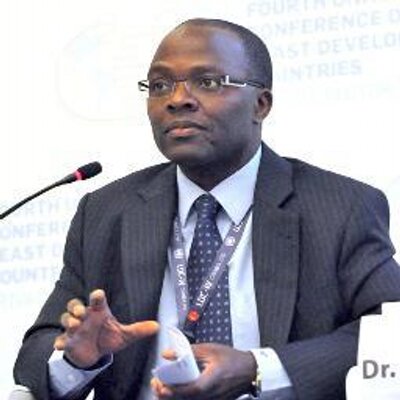
With more than 30 years in telecommunications, including over 20 years in ITU's Development Sector, Dr Zavazava has promoted and implemented impactful information and communication technology projects around the world.
Prior to his election as BDT Director, he served as ITU's Chief of Partnerships for Digital Development, overseeing development-related projects, strategic partnerships, and resource mobilization between 2019 and 2022, while launching new initiatives that have boosted the engagement of industry, private-sector, and academia members in ITU's work.
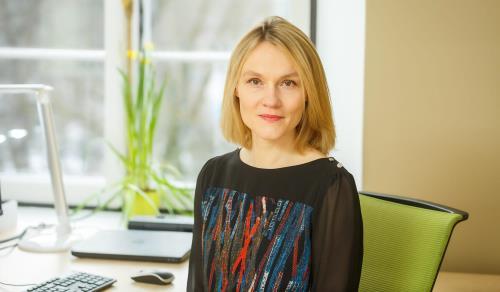
Nele Leosk serves as the Ambassador-at-Large for Digital Affairs at the Ministry of Foreign Affairs of Estonia. Over the past twenty years, she has advised political and public sector leaders in digital governance and digital economy in more than forty countries in Central and Eastern Europe, South-Eastern Europe, Middle East, Central Asia, and Africa. Apart from government work, she has experienced the life of private sector, international and inter-governmental organisations such as the UNDP, UNU, OECD as well as academia. Nele is the chair of Digital Cooperation and Digital Diplomacy network, member of the World Economic Forum’s Global Future Council on Agile Governance, advisory board member of GovStack Initiative, and active in several networks on women in tech. Nele holds a PhD in Political and Social Sciences from the European University Institute (EUI), Italy. She is a former Fulbright-Schuman grantee at the National Centre for Digital Government at the University of Massachusetts Amherst and at the Governance Lab at New York University, USA.

Mr. Amandeep Singh Gill was appointed by the United Nations Secretary-General as his Envoy on Technology in June 2022 and joined the Secretary-General’s senior leadership team as Under-Secretary-General in mid-July 2022.
A thought leader in digital technology, Mr. Gill has a deep knowledge of digital technologies coupled with a solid understanding of how to leverage digital transformation responsibly and inclusively for progress on the Sustainable Development Goals.
Before taking up the position of Envoy on Technology, Mr. Gill was the Chief Executive Officer of the International Digital Health and Artificial Intelligence Research Collaborative (I-DAIR) project based at the Graduate Institute, Geneva.

Sarah Fischer is the Head of the GovStack Flagship project at Gesellschaft für Internationale Zusammenarbeit (GIZ). Prior to leading the GovStack Flagship she worked as a policy advisor for the Sector Programme Digital Development, advising on and implementing the German Federal Ministry of Economic Development and Cooperation’s (BMZ) digital strategy, focusing specifically on cyber security, gig-economy and e-government.
Sarah has 7 years of work experience at the intersection of politics and digitization. Prior to GIZ, she spent several years as a public sector consultant, advising the German Federal Ministry of Economic Affairs as well as the German Federal Ministry of Environmental Affairs on Indutsrie 4.0, digital government and digital civic engagement. Additionally, Sarah contributed to developing digital strategies for several federal states in Germany. Sarah holds a M.Sc. in Politics and Communication from the London School of Economics and Political Sciences, and a B.A. in Liberal Sciences from the University of Maastricht.
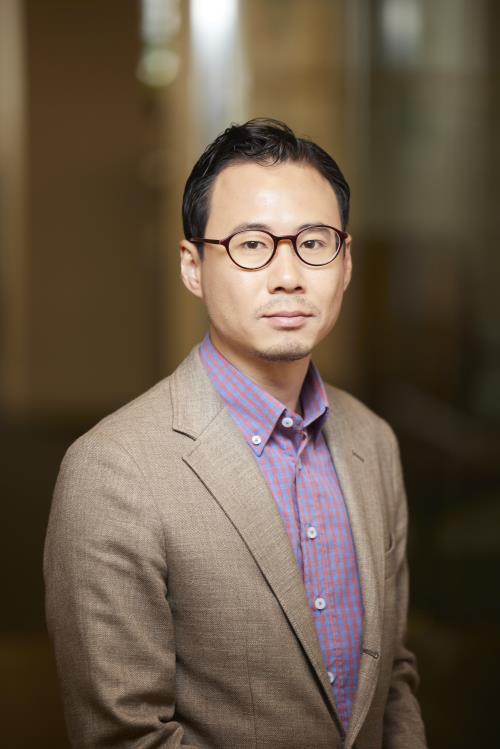
Sherman's vision and thus career are rooted in the philosophy that achieving a culture of data consciousness and rights-protected digitally-enabled efficiency advances public systems and industries jointly. He currently reinforces this belief serving as a Sr. Advisor at UNF-DIAL, working with other actors incl. the UN system, cooperation agencies from EU and AU member states, and international donors, and partner countries and regional bodies to make coordinated investments on proven solutions and Digital Public Goods, and digital government strategies, a reality. In his role, he acts as key UNF-DIAL delegate to the multi-partner GovStack Initiative together w. ITU, GIZ and Estonia, and in general contributes to global policy interventions and ecosystem-level convergence efforts. He previously headed the Malaria Eradication Scientific Alliance (MESA) hosted at the WHO Collaborating Center for Malaria Control, Elimination and Eradication within the Barcelona Institute of Global Health (ISGlobal), with overall management of strategy and work portfolio on technical syntheses re. the malaria R&D ecosystem, scientific direction and knowledge gaps within human understanding in the elimination of the disease. From 2014 to 2017, he acted as an adviser to the office of the president at Globe Telecom (Philippines) to develop and implement a portfolio of digital health innovations, with special focus on collaborating with public and INGO stakeholders of the Philippines. He has also experience assisting / advising WHO, UN-Habitat, UNDP, Grameen Foundation and other INGOs on policy review, programme design and coordination, and hailed from a 6-year span designing data strategies and enterprise-level architectures for large corporations and public entities.
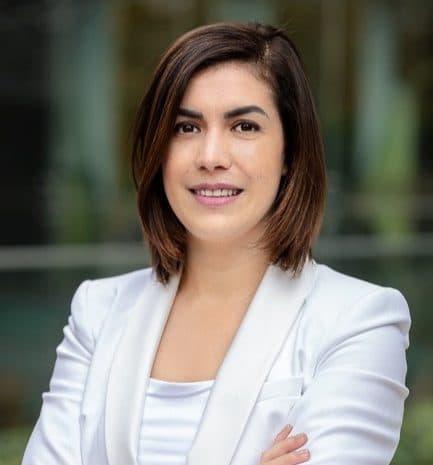
Yolanda Martínez currently works as International Telecommunications Union (ITU) overall lead for GovStack Initiative, helping governments accelerate the digitization of government services. In the public sector, Yolanda led the national digital strategy of Mexico, the digital government unit at the federal level, and the Zapopan digital city program at the local level. She has led several digital transformation initiatives in the private sector while at Deloitte Consulting. In the international arena, Yolanda led the Office of the Inter-American Development Bank (IDB) in Chile, has collaborated with United Nations agencies and joined OECD as a peer reviewer for the digital government strategies of various Latin American countries. Yolanda has been recognized by @political as one of the twenty most influential people globally in digital government. She holds a Ph.D. degree in information and knowledge society from the Open University of Catalonia (UOC).

The WSIS Digital Service Design Special Prize was developed to recognize governments around the world using Digital Public Infrastructure systems (DPIs) and a whole-of-government approach to Citizen-Centric Digital Service Design to achieve the SDGs. This year's winner will be a part of the panelists.
.jpg?maxwidth=500)
Hani Eskandar is the Head of Digital Services Division of the Telecommunication Development Bureau of ITU. Mr. Eskandar is currently involved in providing assistance to several developing countries by advising on digital applications and services strategies and policies, and assisting in implementing technical cooperation projects in areas of digital health, agriculture, governance and education.
Mr. Eskandar has more than 25 years of extensive on-the-ground experience in the field of ICT for development, where he, through working with the International Federation of Red Cross and Red Crescent in Switzerland and UNDP, Ministry of ICT and other NGOs in Egypt, was involved in several development projects in the fields of Health, Education, Illiteracy Eradication, Community Development, SME development, and Micro Credits.
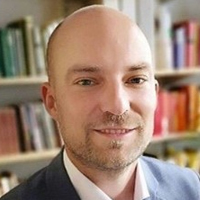
David Roos is the Deputy Head of the Sector Programme Digital Development. The Sector Programme advises and supports German development cooperation actors in applying digital approaches and methods. The programme thus contributes to implementing BMZ's position paper 'Digitalisation for Development' and the German Government's 'Digital Strategy'. David Roos is currently involved in providing assistance to several developing countries by advising on digital applications and services strategies and policies - particularly on digital government.
David Roos has 10 years of on-the-ground experience in IT and software development projects. David Roos led several large digitization projects for the Federal Ministry of the Interior, Building and Community (Germany) and the Federal Employment Agency around digital ID and the development of interoperable government platforms. David Roos led the IT Planning Council project "Online-Gateway" for the CIO of Germany. By 2022, the federal and state governments are to offer all administrative services in Germany digitally via administrative portals and link these portals into a network. With friends David Roos started the social business Quartiermeister. Quartiermeister is a Berlin social start up, consisting of a social enterprise and an association. While the enterprise takes care of selling and merchandising beer, the association is responsible for the allocation of funding and regulates the business operation.
David Roos has an educational background in Political Science and Public Administration and has studied at the University of Konstanz, Germany and the Marmara Üniversitesi Istanbul, Turkey.
-
 C2. Information and communication infrastructure
C2. Information and communication infrastructure
-
 C3. Access to information and knowledge
C3. Access to information and knowledge
-
 C4. Capacity building
C4. Capacity building
-
 C6. Enabling environment
C6. Enabling environment
-
 C7. ICT applications: benefits in all aspects of life — E-government
C7. ICT applications: benefits in all aspects of life — E-government
-
 C7. ICT applications: benefits in all aspects of life — E-learning
C7. ICT applications: benefits in all aspects of life — E-learning
-
 C7. ICT applications: benefits in all aspects of life — E-health
C7. ICT applications: benefits in all aspects of life — E-health
-
 C7. ICT applications: benefits in all aspects of life — E-employment
C7. ICT applications: benefits in all aspects of life — E-employment
-
 C7. ICT applications: benefits in all aspects of life — E-environment
C7. ICT applications: benefits in all aspects of life — E-environment
-
 C7. ICT applications: benefits in all aspects of life — E-agriculture
C7. ICT applications: benefits in all aspects of life — E-agriculture
-
 C7. ICT applications: benefits in all aspects of life — E-science
C7. ICT applications: benefits in all aspects of life — E-science
-
 C8. Cultural diversity and identity, linguistic diversity and local content
C8. Cultural diversity and identity, linguistic diversity and local content
-
 C11. International and regional cooperation
C11. International and regional cooperation